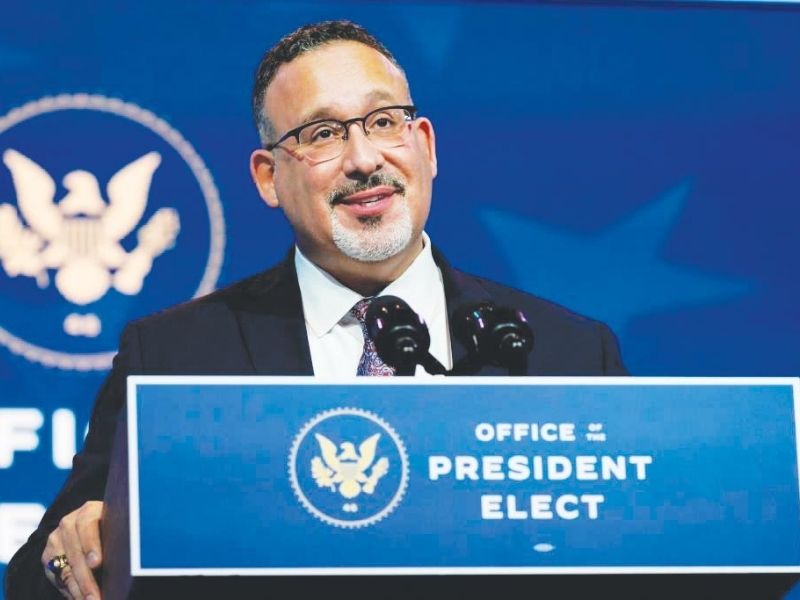
Cardona: equal opportunity champion
President Joe Biden’s choice of a former schoolteacher with low-income Puerto Rican family roots as US education secretary has been seen as pointing towards a renewed focus on equality in universities.
If confirmed by the US Senate, Miguel Cardona would become the third Latino to serve in the nation’s top education post, after spending barely more than a year as the state education commissioner in Connecticut. In a statement, President Biden emphasised Dr. Cardona’s two-decade record of pursuing diversity and equal opportunity in school education, and suggested that he would apply that same commitment at the post-secondary level.
The selection fulfills Biden’s promise to choose someone with classroom teaching experience, as Dr. Cardona has been a teacher, school principal and assistant superintendent in his hometown of Meriden. The 45-year-old became Connecticut’s youngest principal in 2003 and the state’s Principal of the Year in 2012. Former colleagues anticipate a deeply personal emphasis on equal treatment of students and greater attention to quality and diversity in teacher training.
“Much more needs to change in the professional education of educators to eliminate the achievement gap,” says Toni Harp, a former state senator who served alongside Dr. Cardona in 2010 as co-chairs of a statewide task force studying inequalities in student performance. “Dr. Cardona was very interested in solving this problem during our task force days,” says Ms. Harp, recently mayor of New Haven.
Richard Lemons, former assistant professor of educational leadership at the University of Connecticut who taught Dr. Cardona in graduate school, says the nominee well understands the direct link between education, economic security and social mobility. “He is a living example of it,” says Dr. Lemons, now a lecturer in education studies at Yale University who also serves as executive director of the Connecticut Center for School Change.
Dr. Cardona also taught for four years at the University of Connecticut as adjunct professor of educational leadership, and holds five degrees or certificates from Connecticut’s state universities.
(Excerpted and adapted from Times Higher Education and The Economist)